#fat man and little boy
Text
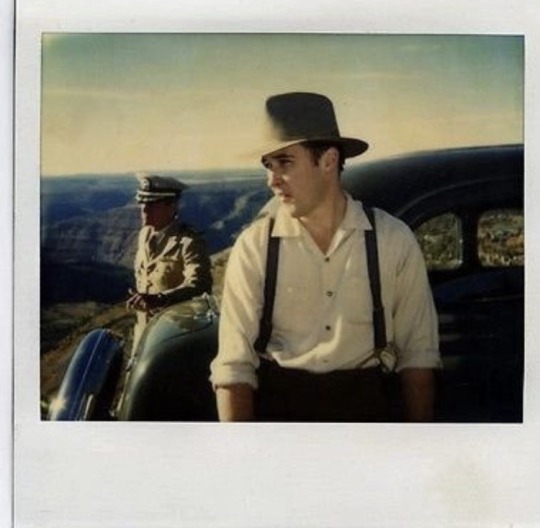

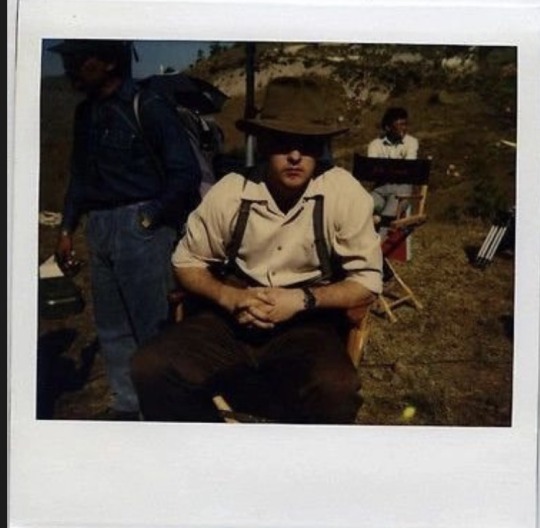



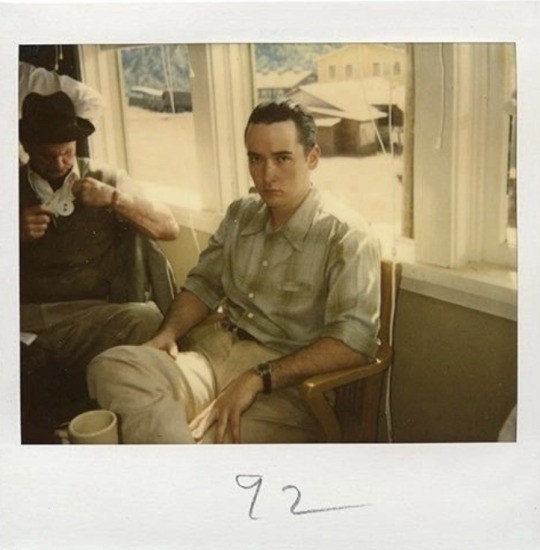


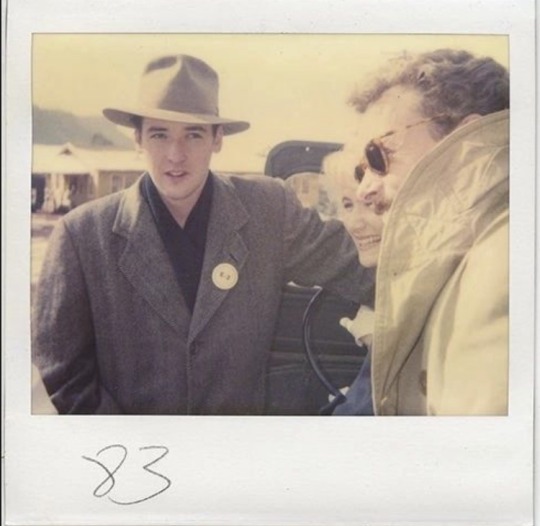
behind the scenes of fat man & little boy pt1
#most of it is cusack funnily enough#fat man and little boy (1989)#fat man and little boy#john cusack#los alamos#michael merriman#oppenheimer#j robert oppenheimer#paul newman#laura dern#dwight schultz#70zcowboyposting
65 notes
·
View notes
Text
Thinking about various portrayals of J. Robert Oppenheimer in media over the years... I have watched some documentaries with reenactments, the Fat Man and Little Boy movie, and the Manhattan series, but none of those actors as him have captivated me (and a lot of the world) as much as the Oppenheimer film has. This shows you the absolute sheer power of Cillian Murphy alone
#and Christopher Nolan's directing#cillian murphy#oppenheimer movie#oppenheimer 2023#oppenheimer#j robert oppenheimer#fat man and little boy#manhattan#my thoughts
22 notes
·
View notes
Text
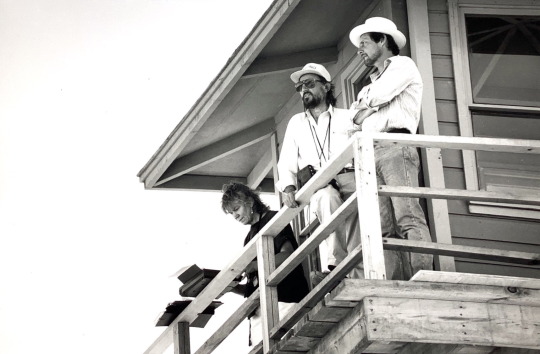
Pat Rambaut
Fat man and little boy, dir. Roland Joffé, 1989.
#script supervisor#continuity#scripte#continuité#on set#behind the scenes#film making#movie set#on the set#pat rambaut#fat man and little boy#roland joffé#vilmos zsigmond
2 notes
·
View notes
Text

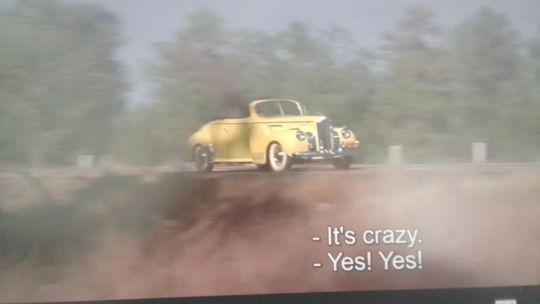
A friend was watching second season of Good Omens and posting some screenshots due to overwhelming emotions in our cozy chat group. (see top picture).
Next day another friend (@tsepesh) is watching a 1989 film Shadow Makers (Fat Man and Little Boy) about Oppenheimer and first atomic bombs...
My mind makes an immediate connection and thus another unexpected crossover is born.
It IS crazy. Yes! Yes!
#good omens#screenshots#hellish working place#good omens spoilers#j. robert oppenheimer#oppenheimer#Shadow Makers#Fat Man and Little Boy#yellow#yellow car#cursed crossovers#blessed crossovers#seeing everything as a symbol makes for fun personal media consumption experience
4 notes
·
View notes
Text
'By now, you’ve no doubt seen Christopher Nolan’s masterpiece about the life of J Robert Oppenheimer, the American theoretical physicist who was responsible for developing the first atomic bomb, as part of the Manhattan Project. Not only has it been a box office smash hit, but it has also attracted rave reviews from critics falling over themselves to praise Nolan’s combination of cerebral insight and pulse-racing thrills.
Yet, inevitably, Hollywood and factual accuracy always make uneasy companions. Although Nolan is an unusually exacting and conscientious filmmaker – and Oppenheimer is based on Kai Bird and Martin J. Sherwin’s Pulitzer Prize-winning biography of the physicist, American Prometheus – there have already been grumblings and suggestions that some of the film’s most eye-catching and striking moments and scenes have been invented. But which ones display cinematic licence, and which ones are based – however incredibly – on fact?
Did Oppenheimer really poison his tutor’s apple?
Early on, there is a striking scene in which a young Oppenheimer, then a student at Cambridge, injects the professor Patrick Blackett’s apple with cyanide, in a fit of fury after Blackett causes him to miss part of a lecture by Niels Bohr (who later became a mentor of sorts to the physicist). It’s a striking scene – and bears a coincidental resemblance to the death of another brilliant, troubled man, Alan Turing, who died after supposedly eating a cyanide-laced apple. But according to Oppenheimer’s grandson Charles, it’s pure invention.
“The part I like the least is this poison apple reference,” he told Time. If you read American Prometheus carefully enough, the authors say, ‘We don’t really know if it happened… There’s no record of him trying to kill somebody.’ That’s a really serious accusation and it’s historical revision. There’s not a single enemy or friend of Robert Oppenheimer who heard that during his life and considered it to be true.”
Yet both American Prometheus and Raymond J Monk’s 2012 biography of Oppenheimer suggest that the incident occurred. As Monk writes: “In what looks like an attempt to murder his tutor, or at the very least to make him seriously ill, Oppenheimer left on Blackett’s desk an apple poisoned with toxic chemicals”. The author notes that it became part of the Oppenheimer myth: “The incident was hushed up at the time, and none of his friends knew about it until they were told of it by Oppenheimer himself, usually in some more or less misleading version. That his feelings toward Blackett mixed fervent admiration with fierce jealously, however, was obvious to those who knew him well.”
Monk suggests that, somehow, his actions were discovered, but he was allowed to continue his studies in exchange for agreeing to be seen by a psychiatrist on Harley Street. Had he been expelled from Cambridge, or imprisoned, then a seismic career would have been curtailed before it began.
One moment in the film, however, is pure cinematic invention, according to Monk. “I think we can be fairly sure that Niels Bohr did not pick up the apple and that Oppenheimer did not smack it out of his hand,” he says. Even Nolan is not immune from the temptation of fabrication for its own sake.
Was Jean Tatlock murdered?
One of Oppenheimer’s most intriguing characters is Florence Pugh’s Jean Tatlock, a Communist Party member who was romantically involved with Oppenheimer before, and during, his marriage to Kitty. Although she is only in the film for a relatively short time, she makes a substantial impression – not least in the depiction of her suicide in January 1944, when, under surveillance by the FBI for her political sympathies and suffering from clinical depression, she took barbiturates and drowned herself in the bathtub.
The presence of a suicide note – “I think I would have been a liability all my life – at least I could take away the burden of a paralyzed soul from a fighting world,” it read in part – seemed to make it clear that she wished for her own end, and the inquest recorded a verdict of suicide, motive unknown.
However, Nolan provocatively includes a scene – depicted as a vision, or fantasy, of Oppenheimer’s – of a gloved hand, belonging to an unknown person, pushing Jean’s head under the water. This might be seen simply as artistic licence, were it not for the fact that this alludes to a well-known conspiracy theory suggesting that Jean’s political views, and involvement with the director of the Manhattan Project, made her dangerous, and therefore expendable to the greater good.
This theory has been bolstered by the fact that her body contained chloral hydrate when she died; combined with barbiturates, this meant that she had what might be called a ‘Mickey Finn’ in her system – a non-fatal dose of drugs that would immobilise her, before she was forcibly drowned. As American Prometheus records one doctor saying: “If you were clever and wanted to kill someone, this is the way to do it.”
The release of Nolan’s film has overshadowed an earlier picture on the same subject, Roland Joffe’s Fat Man and Little Boy, but that film’s co-screenwriter Bruce Robinson – best known for writing and directing the seminal Withnail and I – became convinced that Tatlock had been murdered, and that the public records of her autopsy were, in his words “an inadequate invention”.
As Robinson said to the writer Alistair Owen in his collection of interviews Smoking in Bed: “Piece by piece we get to the point where, had I been the cop I would have made the arrest. The G2/FBI people had her murdered. They gave her chloral hydrate to knock her out, slung her in the bathtub, faked a note, and within a day or two – because her father was a very prominent man in the Berkeley area – there are newspaper reports talking about Jean Tatlock’s suicide.”
Whatever the truth behind Tatlock’s death, Nolan’s film undeniably hints at a larger story than just a tragic self-inflicted demise – and undoubtedly will lead others to ask questions again, too.
Could the Trinity test really have ended the world?
Tatlock’s interest in the poetry of John Donne inspired Oppenheimer to name the first atomic bomb test ‘Trinity’, after Donne’s religious verse. Yet it was the fear of extinguishing the planet, rather than poetic contemplation, that leads Matt Damon’s General Groves to ask Oppenheimer in the film what the chances of global annihilation are. “Near zero,” the physicist replies. In one of the picture’s lighter moments, Groves’s horror at this revelation leads Oppenheimer to say “What do you want from theory alone?” The military man replies: “Zero would be nice.”
The “atmospheric ignition” scenario that the film suggests was a genuine fear of many scientists, including Oppenheimer’s colleague Edward Teller, who worried that the splitting of the atom would lead to a chain reaction that would destroy the world. But by the time the Trinity test took place, it was universally accepted that such a seismic occurrence was impossible.
As Richard Rhodes, author of The Making of the Atomic Bomb, commented to the Washington Post: “This thing has been blown out of proportion over the years. The question on the scientists’ minds before the test wasn’t, ‘Is it going to blow up the world?’ It was, ‘Is it going to work at all?’”
The conversation between Groves and Oppenheimer is therefore a moment of dramatic licence on Nolan’s part that effectively dramatises the concerns that the military – who were funding the operation – had, but the major worry was that of the test succeeding, rather than its causing the apocalypse.
Did Oppenheimer and Einstein’s final exchange happen?
A recurring motif throughout the film, and one only fully explained at its climax, is an encounter between Einstein and Oppenheimer when the latter becomes a senior figure at Princeton, under the auspices of his future nemesis Lewis Strauss. The meeting between the two men – misinterpreted by Strauss, who self-aggrandisingly assumed that they were criticising him – shows a mournful Einstein suggesting that Oppenheimer’s invention of the atomic bomb could have destroyed the world, and Oppenheimer replying: “I believe we did.”
This is, of course, an invention of Nolan’s that elegantly portrays both the shared values and the differences between the two men. But they certainly knew each other in real life, first meeting in 1932 at the California Institute of Technology, and then working together at Princeton after the war, where Oppenheimer remained until 1966. The two men were respectful colleagues rather than intimate friends, and Bird and Sherwin suggest that the younger man saw Einstein “as a living patron saint of physics, not a working scientist.”
Nonetheless, Einstein respected Oppenheimer, calling him “an unusually capable man of many-sided education”, and later defended him when his security clearance was threatened, saying publicly that “I admire him not only as a scientist but also as a great human being” and privately that “the trouble with Oppenheimer is that he loves a woman who doesn’t love him—the United States government.”
Oppenheimer returned the compliment, saying in a lecture in 1965: “Einstein is also, and I think rightly, known as a man of very great goodwill and humanity. Indeed, if I had to think of a single word for his attitude towards human problems, I would pick the Sanskrit word Ahinsa, not to hurt, harmlessness.” Although Einstein had written a letter to President Roosevelt that had convinced him of the necessity of developing an atomic programme, he was never involved in the Manhattan Project, and believed ultimately in the power of science as something to create – rather than to destroy.
Did President Truman call Oppenheimer ‘a crybaby’?
In one of Oppenheimer’s most effective scenes, President Truman – as played by Nolan regular Gary Oldman – meets the physicist, ostensibly to congratulate him for his work on the Manhattan Project. But when Oppenheimer shows contrition for his involvement in the project and suggests he has blood on his hands, Truman sardonically waves a handkerchief at him, before remarking, on Oppenheimer’s ejection from the Oval Office: “Don’t let that crybaby in here again.”
It seems almost on the nose, unlike much of the rest of the elegant script, but this is one instance where a dramatic confrontation is based on documented fact. Monk’s biographer attests to Truman referring to Oppenheimer as a “crybaby scientist” to his aides, and told his Secretary of State Dean Acheson that he never wished to see him again.
While this is contracted into one brief scene, with Oppenheimer overhearing his dismissal, it is nonetheless true that Truman was angered by the scientist’s principled objection. “Blood on his hands, dammit, he hasn’t half as much blood on his hands as I have,” he was recorded saying. “You just don’t go around bellyaching about it.”
Was Kyoto not bombed because a politician went on honeymoon there?
In a moment that epitomises the mixture of horror and black comedy that defined much of the Manhattan Project, the US Secretary of War Henry Stimson, deciding where will be legitimate targets for the atomic bombs to be dropped, suggests that Kyoto should be spared, partly because of its cultural and historical significance to Japan – but also, Stimson says cheerfully, because he and his wife honeymooned there.
The line – which was suggested by James Remar, the actor who played Stimson – seems like the perfect encapsulation of institutional caprice. “It has this bureaucratic quality of a group of men discussing massive destruction and how they’re going to do these awful things.” Nolan has said. “And you’re suddenly seeing a human face to these negotiations.”
It is unclear whether Stimson went on honeymoon to Kyoto, let alone whether his personal affection for the city resulted in its near-arbitrary salvation. Yet it is documented fact that Stimson visited the city several times, when he served as Governor of the Philippines in the 1920s, and that he personally lobbied Truman not to bomb it. The President was in agreement with him, as Stimson recorded in his diary on July 24 1945. Truman, he wrote, “was particularly emphatic in agreeing with my suggestion that if elimination was not done, the bitterness which would be caused by such a wanton act might make it impossible during the long post-war period to reconcile the Japanese to us in that area rather than to the Russians”.
Yet others claim that, rather than Stimson or any other politician, the credit for saving Kyoto should instead go to the archaeologist and art historian Langdon Warner – one of the inspirations for Indiana Jones – who, in his role on the Monuments, Fine Arts and Archive section of the military, made a persuasive case against bombing Kyoto, along with Nara and Kamakura. To this end, monuments to Warner have been erected in Kyoto and Kamakura; a gesture of gratitude to a man who truly understood the awfulness of what would have happened if Japanese culture had been swept away by Oppenheimer’s invention.
Did Kitty testify on behalf of her husband at the security hearings?
Emily Blunt’s presence in the majority of Oppenheimer is slightly perplexing; for a film revolving mostly around men, the A-list star is largely limited to domestic scenes at home that show both her alcoholism and frustration with being sidelined to her husband’s work. Yet she has a magnificent scene towards the end that will probably earn Blunt at least an Oscar nomination, when Kitty attends the security hearings and passionately both defends her husband and attacks their right to hold the quasi-kangaroo court that will eventually result in the withdrawal of his security clearance.
It’s largely drawn from the transcript of the hearings – as is much of this narrative thread – and shows Kitty as “forthright and unflustered”, as Bird and Sherwin suggest, and that “she acquitted herself easily, coolly and precisely answering each question.” Rubbishing the idea that her and her husband’s previous association with the Communist Party might make them security risks, Oppenheimer’s biographers conclude that “Kitty did not give an inch. Not even [Roger] Robb [the attorney cross-examining at the hearing] could touch her. Calm and yet alert to every nuance, she was undoubtedly a better witness than the husband she was defending.”
Did Oppenheimer really learn Dutch in six weeks?
Early in the film, there is an amusing scene when Oppenheimer is about to give a lecture to a group of Dutch students. His colleague confidently expects that he will speak in English to widespread confusion, but instead Oppenheimer delivers a complex technical talk in fluent Dutch. When asked how long it took him to master the language, Oppenheimer replies “six weeks.”
This might seem like a piece of pure invention, designed to show off Oppenheimer’s savant-level brilliance, but it is entirely true; the physicist had a facility for mastering languages that enabled him to learn Dutch and Sanskrit in record time; reading the Bhagavad Gita in the latter was what led him to come out with his famous comment, after the success of the Trinity test, “Now I am become death, destroyer of worlds.” His friend Harold Cherniss paid tribute to his ability to get to grips with any intellectual challenge, saying: “When he became interested in anything, he very quickly picked up an enormous amount of knowledge about it.”
Did he follow a martini and cigarette diet?
Cillian Murphy’s brilliant performance as Oppenheimer is due, in part, to the naturally slim actor’s weight loss, which makes him look as intensely gaunt as the real-life man. Oppenheimer himself was only 127 pounds (just over nine stone) and failed an Army medical because he was considered too underweight to become an officer. At his most extreme, during the activity of the Manhattan Project, Oppenheimer’s weight dropped to a mere 115 pounds.
Bird and Sherwin wrote that “his energy level never flagged, but he seemed to be literally disappearing little by little, day after day.” He may not literally have lived off cigarettes and martinis, as the film suggests, but food was increasingly secondary to the more immediate stimulation provided by nicotine and alcohol; as one of his neighbours observed, “My God, if the man ate a thousand calories a day it was a miracle.”
Did Kitty Oppenheimer refuse to shake Edward Teller’s hand?
At the film’s conclusion, there is a powerful brief scene where, as an older and rehabilitated Oppenheimer is awarded the Femi Award at the White House, his friend-turned-Judas Edward Teller (who testified against him at the security hearings) offers his hand to shake. Oppenheimer does so, apparently without resentment or anger. But when Teller offers Kitty his hand in turn, she scowls furiously at him, and he withdraws it, abashed.
It might seem like a convenient piece of dramatic invention, but onlookers testified as to its accuracy, and offers confirmation – as if it were needed – that Kitty’s passion and anger were an invaluable foil to her husband’s cooler and more analytical temperament.'
#Oppenheimer#Kitty#Emily Blunt#Edward Teller#Enrico Fermi Award#American Prometheus#Kai Bird#Martin J. Sherwin#Christopher Nolan#The Manhattan Project#Patrick Blackett#Niels Bohr#Alan Turing#Raymond J. Monk#Jean Tatlock#Florence Pugh#Roland Joffe#Fat Man and Little Boy#John Donne#Leslie Groves#Matt Damon#Bruce Robinson#Withnail and I#James Remar#Henry Stimson#Cillian Murphy#Harold Cherniss#President Truman#Gary Oldman#Roger Robb
4 notes
·
View notes
Text

#Hiroshima#hiroshima bombing#fat man and little boy#atomic terror#atomic wars#atomic war#atomic bomb#atomic shadows#shadow people#captainpirateface#bipolardepression#chemicalimbalance#wtf#sad core#sadness#sadcore#sad#ghosts#shadow ghosts#shadows of Hiroshima#scary sights#sights and sounds of tumblr#we have such sights to show you#sights and sounds#sad sights#CaptainPirateFaceLovesYou#captain pirateface
2 notes
·
View notes
Text
O Início do Fim [Fat Man and Little Boy] [1989]
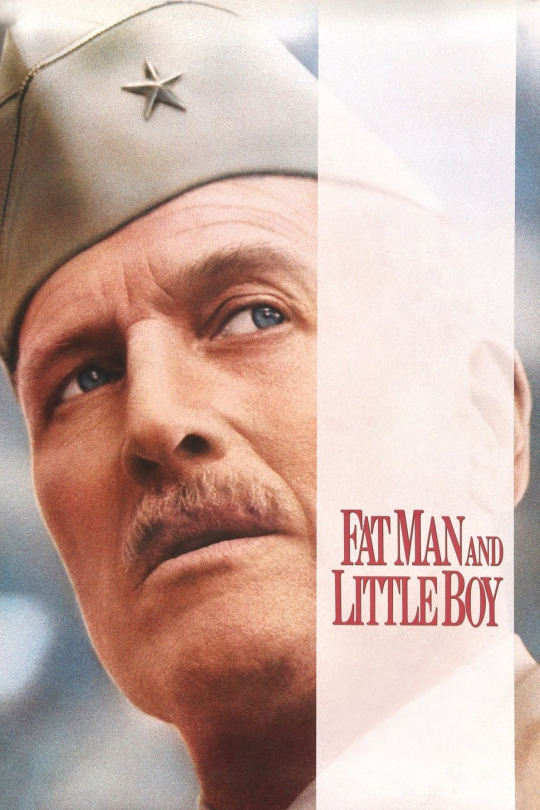
O Início do Fim [Fat Man and Little Boy] [1989]
0 notes
Text




Dixie and her babies.
Carter is a big sleepy handsome man!
#cute#cat family#neko#gato#fat cat#katze#Carter#tabby#big tabby#big boy#handsome#handsome cat#the boy#big baby#fluffy#fluffy little man#handsome man#old baby#mama's boy#mama cat's blog#big cat#so cute#sofa#handsome lad#Miami
529 notes
·
View notes
Text

Name this indie rap duo.
#red letter media#jay bauman#rich evans#rlm#rlmblr#RedLetterMedia#I'm gonna call em Fat Man & The Little Boy
43 notes
·
View notes
Text
Does Oppenheimer (2023) have a behind the scenes image of Paul Newman as Gen. Groves eating an apple? No, didn’t think so.

#i believe in fat man and little boy (1989) supremacy#70zcowboyposting#fm&lbposting#paul newman#fat man and little boy (1989)#fat man and little boy#dwight schultz#john cusack#laura dern#j. robert oppenheimer#oppenheimer movie#oppenheimer (2023)#shadow makers 1989
73 notes
·
View notes
Text
I mean this unironically and with so much love in my heart. Old hairy fat men ily & this boycunt is open use for you. I touch myself thinking abt a lot of stuff and older men make me so horny. Especially the perverts. Break this little boy open, please?
#ftm breeding#ftm nsft#ftm bottom#ftm puppy#dm me#ftm sub#nsft t4t#send anons#older guys#older daddy#older men do it better#older dad bf#ftm dd/lb#i just want an older man to be nice to me and fuck my little boycunt#I'll call you daddy or sir or your name or anything I'll call you dad or my perv uncle if it's what gets you off#just remind me that I'm a little boy made to break and be bred under you#ily fat hairy old men
24 notes
·
View notes
Text

I keep having to pull my shirt down while I’m in public. Embarrassing 😳🥴
#bhm#big handsome man#chub#fat man#fatboy#guys with beards#body contrast#me#devilmaychub#hairy belly#belly hang#belly peek#clothes don’t fit#4xl shirt#fat guy little shirt#bashful BHM#big boy season#team thicc#belly love#chub love
61 notes
·
View notes
Text
Get a man who can do both
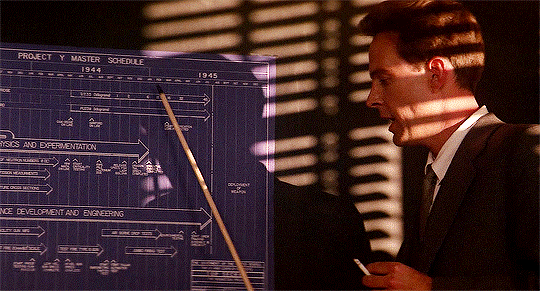


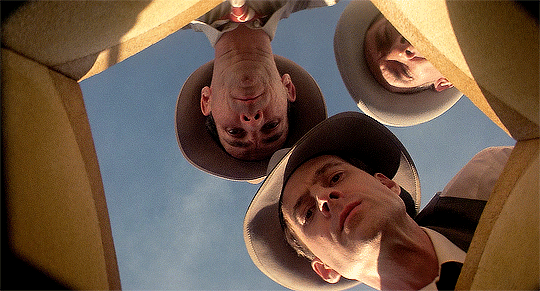
#dwight schultz#hm murdock#the a team#oppenheimer (1989)#oppenheimer#fat man and little boy (1989)#my old man babygirl#my blorbo
26 notes
·
View notes
Text
'Oppenheimer, starring Cillian Murphy, as J. Robert Oppenheimer, has been getting a lot of buzz this summer for its subject (The Manhattan Project) and its close premiere date with The Barbie movie. Long before Oppenheimer, there have been many movies created about The Manhattan Project, J. Robert Oppenheimer, or the terrors of the atomic bomb.
We searched Reddit to discover what movies and documentaries Redditors recommend to watch before Oppenheimer. From Fat Man and Little Boy to Trinity and Beyond - The Atomic Bomb Movie, there are many different options for documentary lovers, classic film enthusiasts, and even sci-fi fans.
10 'Fat Man and Little Boy' (1989)
Fat Man and Little Boy, directed by Roland Joffé, is a dramatic interpretation of the events and people surrounding The Manhattan Project. General Groves enlists the help of a team of scientists, including Oppenheimer, to develop atomic bombs. Politics and technical issues delay and cause the team to clash with each other as they get closer to creating Fat Man, a heavy plutonium bomb, and Little Boy, a smaller plutonium bomb. The movie brings together an all-star cast, including Paul Newman (General Leslie R. Groves), Dwight Schultz (J. Robert Oppenheimer), John Cusack (Michael Merriman), Laura Dern (Kathleen Robinson), and Bonnie Bedelia (Kitty Oppenheimer).
Critics weren't too excited about Fat Man and Little Boy when it came out, but Reddit doesn't seem to mind the dramatization of The Manhattan Project. Reddit user Beatle7 commented that "Fat Man and Little Boy does cover it [The Manhattan Project], and it's OK..." Another user Spies87 also mentions Fat Man and Little Boy as a recommendation. This movie will provide Oppenheimer moviegoers with a base for what direction a fictionalized movie can take, but it won't provide a good basis for facts about The Manhattan Project.
9 'Infinity' (1996)
Infinity is kind of indirectly related to The Manhattan Project. Matthew Broderick stars as Richard Feynman, a physician known for his work on The Manhattan Project. Infinity doesn't focus too much on the science or what goes on with atomic bombs. Instead, the film's plot dives into the romantic chemistry between Richard and Arline, his love interest who is played by Patricia Arquette.
While Oppenheimer isn't a romance, movie fans should consider giving Infinity a watch before they head to the theater to see Christopher Nolan's thriller unfold. Richard Feynman is depicted by Jack Quaid in Oppenheimer. Infinity gives a peak into Richard Feynman's life outside the lab and how he met his future wife, Arline. "There's a great movie of Matthew Broderick's (produced and acted in) called Infinity in which he's playing the physicist Richard Feynman, who was instrumental in the Manhattan Project. He was newly married when he worked there, and it's a big part of the movie," wrote Reddit user Beatle7.
8 'The Manhattan Project' (1986)
Despite its name, The Manhattan Project, directed by Marshall Brickman, isn't actually about the atomic bomb experiment in New Mexico. However, this film does involve an atomic bomb. Paul, a smart young teenager played by Christopher Collet, decides to create an atomic bomb for his school science project after he is inspired by a visit to scientist John Mathewson's lab. Paul must steal radioactive materials to build his project and to help his aspiring journalist girlfriend, Jenny, who wants to expose the company that John works for.
The Manhattan Project and Oppenheimer are very different movies, but they both are thrillers. A viewing of The Manhattan Project will help Oppenheimer moviegoers in the right state of mind to watch the fast-paced action and intrigue. One of the main reasons to watch The Manhattan Project is Lithgow's portrayal of scientist John Mathewson. Reddit user castlebravomedia commented that the film is alright, but John Lithgow is always fun to watch.
7 'The Beginning of The End' (1957)
The Beginning of The End, directed by Bert I. Gordon, is another sci-fi movie that doesn't involve anything about The Manhattan Project, but it deals atomic horror. The film stars Peggy Castle as Audrey Ames, a journalist who must work with Dr. Ed Wainwright, a scientist, to stop giant grasshoppers (whose size happened due to consuming radioactive tomatoes) from destroying Chicago.
Redditor mike_sean recommended watching The Beginning of The End to a Reddit user who asked for suggestions on movies that depict The Manhattan Project. Giant monster movies, also known as kaiju films, are a cultural aftereffect of people's fear of nuclear war and atomic bombs. Like other giant monster movies, The Beginning of The End depicts this fear in the metaphor of giant grasshoppers. The film was made ten years after The Manhattan Project ended, and shows how it had lasting impact on the American subconscious.
6 'Day One' (1989)
Day One, directed by Joseph Sargent, is an Emmy-award winning TV movie about the creation of the atomic bomb. This docudrama portrays the dynamics (good and bad) between General Groves (Brian Dennehy) and The Manhattan Project team, including J. Robert Oppenheimer (David Strathairn) and Leo Szilard (Michael Tucker).
Day One fans say that this is a solid adaptation of the novel, One Day by Peter Wyden. Many fans also commend David Strathairn's performance as Oppenheimer and Brian Dennehy's portrayal of General Groves. Reddit user mike_sean suggested this movie to their fellow Redditor who was looking for recommendations for movies related to The Manhattan Project.
5 'Countdown to Zero' (2010)
Countdown to Zero, is a documentary directed by Lucy Walker, about the atomic bomb and nuclear arms race. It's an intense analysis at how the possibility of nuclear weapons being unleashed has risen due to factors such as terrorism and lack of legislation.
This documentary doesn't dive into The Manhattan Project. However, there are moments of in the film which show Oppenheimer. Reddit user Summerbrau recommended Countdown to Zero to a Redditor who was looking for documentaries about The Manhattan Project. They commented: "Not specifically the Manhattan Project but has a lot of Oppenheimer footage from the day. Countdown to Zero by Lucy Walker."
4 'The Day After Trinity' (1981)
The Day After Trinity is a documentary directed by Jon H. Else. The documentary's name refers to a famous quote said by Oppenheimer. The Day After Trinity examines the life of J. Robert Oppenheimer and his work associated with The Manhattan Project. While the film does include information about the early days of The Manhattan Project, it also extensively covers the aftermath of the Trinity event.
What is the most interesting thing about The Day After Trinity is that it just doesn't talk about J. Robert Oppenheimer. The film features several interviews with people who worked on The Manhattan Project. As a bonus, the documentary also has declassified government footage. One Reddit user wrote: "The Day after Trinity" - this one is great. It has a lot of interviews."
3 'The Atomic Cafe' (1982)
The Atomic Cafe, directed by Jayne Loader, Kevin Rafferty, and Pierce Rafferty, is a documentary-like film of archival footage from the 1930s and 1940s. The editing together of U.S. propaganda about atomic bombs creates an oftentimes funny, but mostly terrifying depiction of atomic bombs.
From the obscure music to its tongue-in-cheek humor, critics and fans absolutely love this documentary. The Atomic Cafe sends its viewers a message about atomic bombs with only footage and no narration. This makes it a prime candidate for being a classic documentary. Reddit user mi-16evil calls The Atomic Cafe a "classic about nuclear paranoia."
2 'The Trials of J. Robert Oppenheimer' (2008)
The Trials of J. Robert Oppenheimer, directed by David Grubin and narrated by Campbell Scott, is a made of TV documentary which follows the life of Oppenheimer from his childhood to his time as a scientist on The Manhattan Project. This film is part of The American Experience series from PBS and WGBH Boston.
Reddit user TepidShark recommended The Trails of J. Robert Oppenheimer to a Redditor who wanted to know any movies or TV shows they should look into before they see Oppenheimer. This documentary takes a biographical look into Oppenheimer's life with archival footage, but it also includes reenactments of the Oppenheimer security hearing. In their comment, Redditor TepidShark mentions that the documentary "features recreations of a trial Oppenheimer was involved in, that feature David Strathairn as Oppenheimer."
1 'Trinity and Beyond: The Atomic Bomb Movie' (1995)
Trinity and Beyond - The Atomic Bomb Movie, directed by Peter Kuran, is a documentary about the history of nuclear weapons. The documentary, narrated by William Shatner, uses restored archival footage to explore how nuclear technology was developed. The film includes clips of weapons being tested, including the Trinity site test to the test of the Nike Hercules defense missile.
Fans of Trinity and Beyond praise it for being informative and haunting. The film is also popular for its score by the Moscow Symphony Orchestra. Redditor user mi-16evil suggests that people interested in seeing Oppenheimer should watch this movie because it is a "pretty good straight up documentary about the nuclear arms race."'
#Oppenheimer#Trinity and Beyond: The Atomic Bomb Movie#The Trials of J. Robert Oppenheimer#The Atomic Cafe#The Day After Trinity#Countdown to Zero#Infinity#Fat Man and Little Boy#The Manhattan Project#Jack Quaid#Richard Feynman#The Beginning of The End#Day One#Matthew Broderick#Cillian Murphy#Paul Newman#John Cusack#Laura Dern#William Shatner
5 notes
·
View notes
Text
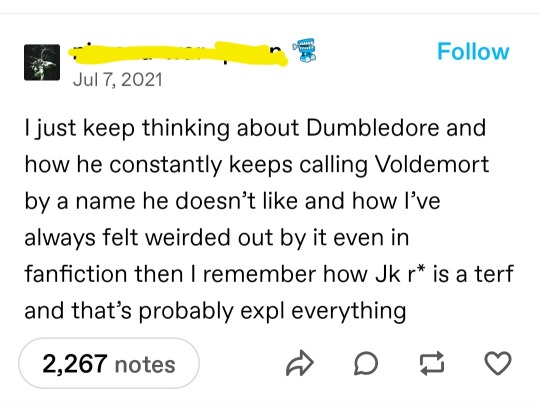
this is fucking wild. i don't care about harry potter discorse but saying that the dude who wanted to commit wizard genocide should be called a certain name just because he chose it for himself is such brain worms. like these people would literally call hitler xXsonofsatan666Xx if he had said he preferred that
#actually if my harry potter memory holds up at all he changed it cause he hated his dad who was a muggle#or his mom maybe#don't remember#but it's like a mixed kid getting an ethnic name and deciding not only does he not like the name#but he wants to genocide the entire race he's half of#half japanese kid named hiro changes his name to brian and decided to finish what fat man and little boy started#sorry this post sent me#щ
9 notes
·
View notes
Text
just watched joe try to climb into a hammock but because he's fat & chunky he fell out 😭
so I went over because I felt really bad and he was just sitting there like GENUINELY on his ass. made me sad so I harassed him with affection. put him up on the platform with a little hut and now he's chilling in there
#the boy. why is he so FAT#i have four rats who live in the same cage and eat the same things but somehow only one of them is fat?????#i mean i love him. he is my sweet little chunk man#but sometimes it makes him. Fall Down!#rayrambles
2 notes
·
View notes